

Goran Lucic, lingustic assistant in the Croatian-Slovenian lawyer-linguist tandem team
I started working for the European institutions in 2014, moved around a lot as contract/temporary agent in the Council and the European Commission, before finally joining the Quality of Legislation Directorate (DQL) in 2019 as assistant to lawyer-linguists.
Working in the DQL is quite challenging and interesting at the same time, as we are the final instance before something gets published in the Official Journal of the EU, so we have to be very attentive and have an eye for eventual typos and/or other kinds of mistakes.
The thing about working here that I like a lot is that, although we are in a multicultural environment, in our rather small tandem teams we are in constant touch with our mother-tongue.
Another very important aspect is that, on the one hand, we are not at all micromanaged by the hierarchy, while, on the other hand, managers do take care of their staff's needs by empowering them to get adequate training to guarantee the best possible service.
Lingustic assistant in the Croatian-Slovenian lawyer-linguist tandem team at the Council of the European Union

Renée Idzerda, linguistic assistant for the Dutch Translation Unit
After gaining 15 years of experience in the private sector (mainly in internal and external communication), I joined the European Commission in 2013 and took up my current position at Directorate-General for Translation (DGT).
As a translation assistant at the European Commission, you are always in the middle of the news. Whereas in other Directorate-Generals the focus is on one policy area, at DGT all possible themes are covered. And we receive all types of text formats, such as legislative proposals, decisions, speeches, press releases, letters, etc. We are therefore always involved in current EU policy.
As an assistant you are at the service of others: translators, the head of unit, other assistants, etc. There is always someone who needs your help. Moreover, translators work to strict deadlines. Being able to quickly assess what is important, i.e. recognising priorities, is therefore a must. Especially as these priorities can change. In order to deal with unexpected twists in the planning, you need to have talent for organising. Good teamwork and communication with colleagues are also crucial.
As a translation assistant, you have many diverse responsibilities. It is therefore a plus if you like multi-tasking. Moreover, you work very independently: each assistant handles (every aspect of) the translation requests within his or her portfolio. The work is therefore varied. Translators count on you to spontaneously jump in where you can, so that they can focus on their work.
When I started out as a translation assistant, I had a lot to deal with. Fortunately, DGT provides all the necessary training. Moreover, during your induction period you are coached by experienced colleagues, either from your own or from another language department. Continuous training is encouraged. And this is very welcome, because the translation world quickly evolves, also from a technological point of view. Only if you master new applications quickly you can offer the best possible support.
Dutch and Flemish people work together in our department. The working atmosphere is surprisingly informal, more than you might expect from an EU institution. There is a lot of collegiality. This not only ensures that we deliver high-quality translations as a team, but also that it is a pleasure to work here, even in periods of heavy work pressure.
The official language in our department is Dutch, our mother tongue. That is quite special in such an international environment. It makes working together comfortable. We also use other languages - mainly English and French - on a daily basis in our contacts with colleagues from other departments.
As an assistant, you work with people at various levels within the organisation. Strong language and communication skills are therefore essential!
Working as a translation assistant at the European Commission means, above all, helping to steer the work of translators, the head of unit and your fellow assistants in the right direction. In this way, you contribute to the communication with EU citizens.
Linguistic assistant for the Dutch Translation Unit at European Commission (Directorate-General for Translation)
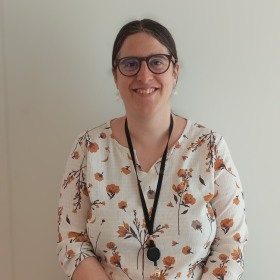
Aude, European Parliament
"Multilingualism - the possibility to express and inform oneself in any official language - plays a key role in Europe. This makes my work at the European Parliament’s Directorate-General for Translation useful. As the leader of the team responsible for TRAD’s statistics, I can analyse and make available information about the use of languages, as well as show the work of our translators. I like the fact that my work includes different skills. I am working with the technical part of data processing as well as the design of metrics to monitor the situation. Therefore, collecting, cleaning and organizing data is my daily job, in addition to creating new metrics fitting our management needs and issuing/reworking our indicators set."
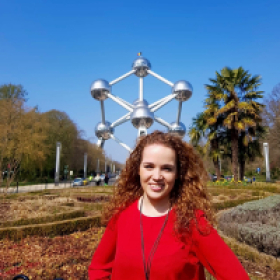
Tessa Pouels González, lawyer-linguist assistant in the Dutch team in the Directorate Quality of Legislation
My name is Tessa, I come from Spain and I work as a lawyer-linguist assistant in the Dutch team.
When I finished my master's degree in legal translation, I thought that my next step would be to work as a freelancer, but I am proud to say that the European institutions offer opportunities to motivated young people eager to be part of the European project.
Working at DQL – where we check the drafting quality of legal acts of the European Council and of the Council – is both challenging and rewarding, as you get to participate and gain an insight into the process of adopting legislation. It is most motivating to be part of a multicultural team with colleagues from different academic, professional and social backgrounds where you are constantly encouraged to continue growing personally and professionally, while benefiting from good working conditions, a wide range of training opportunities and the possibility to change jobs between services and institutions.
If you always wanted an international challenging and interesting career, I highly recommend working for the European institutions. Besides, life in Brussels is enriching and interesting with many activities and events to enjoy.
Lawyer-linguist assistant in the Dutch team in the Directorate Quality of Legislation (DQL) at the Council of the European Union
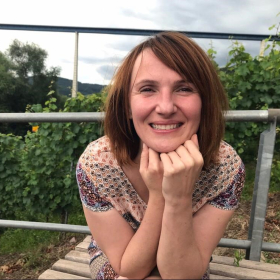
Agnieszka Wendel, linguistic assistant at the Polish Translation Unit
I have been working for the Directorate-General for Translation (DGT) Polish language department in Luxembourg for 15 years.
I studied Spanish Philology and American Studies in Poland, at the Jagiellonian University. Before working at DGT I was an official at the American Consulate in Krakow and wanted to continue my work path in an international environment.
I like my job because:
- I feel part of the European society,
- it’s never boring,
- it helps me develop as a professional.
Working at DGT gives me lot of satisfaction. I can feel I am doing something that really counts in the world. Dealing with everyday problems and world issues lets me see and understand what EU means for all of us. The job of the linguistic assistant gives me a lot of opportunities because it is developing along with the world. When I started 15 years ago it was a completely different kind of work. Everything developed, skills, software etc. I had the chance to acquire new computer skills, to learn German and French, to develop my social skills. I also had the chance to work for a few months in the European Parliament, which was one of the most exciting experiences for me.
The biggest challenge for me is to reconcile the professional and private life. I am a single mother with two young children, so I really appreciate how DGT lets me organize my working time (e.g., part time) to manage life in a way that is suitable for everyone.
I moved to Luxembourg in 2007, which was a big change for me, as I left a big city of almost 1 million inhabitants for a much smaller capital. Luxembourg welcomed me with rain, low traffic and its internationality. I really liked the efficiency of the public transport, which offered me many options to get to work smoothly and usually on time. Living in Luxembourg opens your mind. You can hear so many languages in the street, you can make friends from all over the Europe, you really feel you are a part of the world.
Linguistic assistant at the Polish Translation Unit at the European Commission (Directorate-General for Translation)
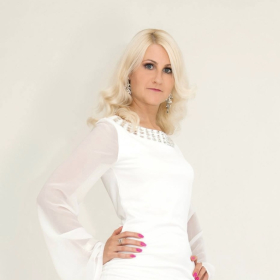
Jana Zhvanko, linguistic assistant at the Estonian Translation Unit
I decided to participate in an EPSO competition for translation assistants; I passed it, and joined Parliament in 2008! Being an open, active and communicative person, I made the most of it and enjoyed every single day of my working life here – and I still do.
My work involves the use of a range of both linguistic and technical skills, which makes it very dynamic. Given that we use a variety of different tools and working methods, and that our technical instruments are always being developed further, there is always room to grow personally and broaden one’s knowledge.
For me, working for DG TRAD at Parliament is like building a linguistic bridge between the political world and the citizens of each member state. The EP’s newest projects bring us closer to people, and help us to connect and interact with them. I see myself as part of a big structure: as it is the case with all complex, multi-faceted mechanisms, every single part of the system is important. Only together do we make it work!
Linguistic assistant at the Estonian Translation Unit at European Parliament (Directorate-General for Translation (TRAD))
Zinaida Ankova, linguistic assistant for the Italian Translation Unit
I joined the European Commission 13 years ago, and I am currently based in Luxembourg. I am from Bratislava, Slovakia and since my childhood I was convinced that I would one day be working and living abroad.
Before passing a competition for assistants and joining the EC, I worked in different international organisations such as the International Federation of Red Cross and Red Crescent in Hungary and Switzerland, United Nations in New York.
I am currently working at the Italian Translation Unit as a Linguist Assistant. Being Slovak of Hungarian origin, this perfectly matches the ‘’United in Diversity’’ slogan of the EU and I am proud of that.
The Directorate-General for Translation (DGT) is an attractive place to work, for both translators and assistants. An excellent knowledge of Italian (or any other EU language, depending on the language department) at a native speaker level is mandatory.
My everyday work consists of supporting the translation and terminology work of the unit and the department, handling translation requests, preparing translations and other language products, handling outsourced assignments, screening originals and pre-processing reports for references to background documents linked to translation, document alignments, checking their quality and correcting them, finalising documents from the point of view of typography and page-layout and maintaining translation project memories.
This kind of work, varied and exciting, keeps me mentally fit, challenged and gives no room for procrastination or boredom.
EC and DGT offers to the newcomers numerous trainings that are remarkably well done, helping to quickly get familiar with job requirements. On top of these, I am very lucky that in my Unit I could benefit from an excellent coaching of my assigned mentors. My team and hierarchy provide support, recognition and daily contributes towards an outstanding working environment.
For me working for the EC, an organisation that represents the interest of 450 million EU citizens, is a huge responsibility, commitment and source of pride and personal satisfaction.
Linguistic assistant for the Italian Translation Unit at European Commission (Directorate-General for Translation)
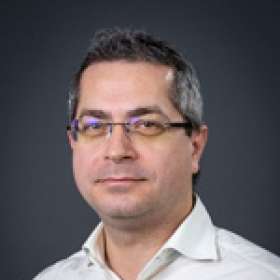
Todor T., Head of Department Central Systems
"Born outside of the European Union, behind what people call "the Iron Curtain", I grew up in times of change. I studied and graduated in the Technical University of Sofia. Shortly after my home country joined the EU and, from one day to the next, I was working in the European Union: it became easier to travel to another country; to work for a foreign company and to live abroad. For several years I worked and lived in the European Union, and now I work for it.
After 7 years of experience in the private IT sector, in 2011 I joined one of the 34 decentralised agencies of the EU as a temporary agent. There I realised that working for the European Union is more than a multicultural experience - it is applying your skills and expertise for the common good of people living in different countries, each of which may have a different way of doing things. As an Application Portfolio Manager my mission was to ensure the proper functioning of the SAP ERP solution in place. With a team of specialists we were analysing updated business requirements and then building and enabling additional features needed.
In 2012 I have participated in an EPSO competition just like this one - the European Union was looking for skilled and experienced ICT specialists, willing to join the lines of its staff. After passing the competition I have joined DG ITEC of the European Parliament, where I still work until today. And organistions are like living organisms - their processes mature; data and capacity grow; projects are created, executed and closed; something always happens and often due to change in priorities.
For the last 8 years I have changed three different roles in DG ITEC - Project Manager, Application Responsible and now Head of Department. Working for the IT department of the organisation representing the interests of 450 million EU citizens is both a responsibility and commitment, where being a good team player is only for starter. It is also an awesome career for a boy who went into IT because of computer games."
Directorate-General for Innovation and Technological Support, Corporate IT Systems Unit, European Parliament
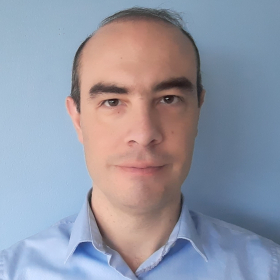
Emmanouil P., IT project manager
"I joined the European Institutions as an official in 2016, after more than 10 years in the private sector in Information Technology domain. Since February 2021 I am a member of the Directorate-General for Innovation and Technological Support of the European Parliament.
In the context of my current post, I am managing Information Technology projects in the promising domain of Digital Workspace and Digital Transformation.
It is inspiring to experience how the IT solutions you manage and your invested effort facilitates the operation of an institution with a complex structure and several thousands of employees and stakeholders.
The overall sense of responsibility that is required, motivates me to strive for excellence, since the output of my work has high visibility and direct impact on the daily work of Members of European Parliament and senior officials of the Institution.
The working environment is exceptional, allows you to take initiatives and utilise your skills and expertise. Management has been supportive, ensuring that you integrate smoothly in European Parliament ecosystem. I particularly appreciate the multicultural atmosphere, interacting daily with colleagues from a variety of European countries.
A wide variety of training opportunities is available and there is investment in professional development, which is a crucial point for a rapidly evolving domain like Information Technology."
IT project manager, Directorate-General for Innovation and Technological Support, Corporate Information Systems, European Parliament
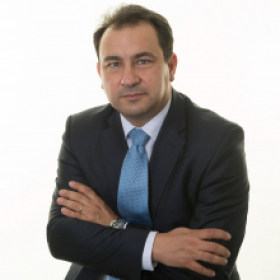
Nikos Z., Auditor
"I joined the European Court of Auditors in 2006. As an auditor, I work on cohesion policy and on the annual performance report, which provides an overall assessment of the added value of EU programmes.
My duties include planning audits, assessing evidence, reviewing a large variety of documents, drafting reports as well as making on-site visits to authorities and beneficiaries in Member States. Our main working language is English but we also speak several other languages. Good communication and organisational skills are essential to my job.
I have a background in engineering, followed by studies in Public Administration. I also qualified as a certified internal auditor with the Institute of Internal Auditors and then completed a Master of Science in Audit Management and Consultancy. Before joining the European Court of Auditors, I worked as a project manager and as an internal auditor in industrial organisations."
Auditor, European Court of Auditors

